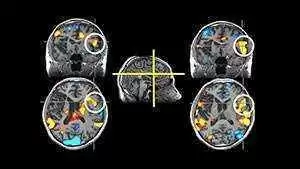
Celiac.com 09/10/2020 - Brain fog is a state of mind that many celiacs experience, frequently in response to eating gluten, whether intentionally or otherwise. Sometimes we experience brain fog even when we are quite certain that we have not had any exposure to gluten. I am intimately familiar with this mental state, both when I have accidentally ingested gluten, and at times when I am sure I have not. At such times, my thinking becomes cloudy. I feel slightly detached from the world and my own emotions. I make mistakes that I would not normally make. I feel less alert, do not remember as well, become absent minded, require more sleep, sleep more soundly, and feel less rested when I awaken. I’m also a tad clumsier. I’m more easily confused. I find it more difficult to focus my attention and I sometimes feel mildly depressed.
As I have mentioned in a previous article, brain fog is likely due to the convergence of a variety of contributing factors. My focus on that occasion was on exorphins—the morphine-like substances that come from partly digested gluten and dairy products and are sometimes called opioids. I also mentioned in that earlier article that the increased intestinal permeability found in active celiac disease, and now associated with the recently discovered zonulin, was a likely contributor. In susceptible individuals, gluten ingestion causes increased zonulin production. Zonulin widens the spaces between epithelial cells.
Celiac.com Sponsor (A12):
Gluten’s contribution to brain fog is especially likely because zonulin not only causes a leaky gut—it also causes the same increase in permeability of epithelial junctions that form the blood brain barrier and which normally protects the brain from impurities in the bloodstream. Zonulin-induced permeability in the gut and the brain open a path for opioids to enter the circulation and then the brain. One feature of opioid activity is to alter blood flow patterns in the brain (1). Both the action of zonulin and opioid-induced impacts on brain perfusion combine to suggest that opioids derived from gluten and dairy products are likely to contribute to brain fog in celiac patients when they ingest gluten. Thus, gluten indirectly opens the gates to allow passage of gluten and dairy proteins through our protective barriers.
However, food derived opioids are only one of many likely contributors to the brain fog that comes to us through a leaky gut. A leaky gut allows a mixture of foreign proteins and peptides to enter the bloodstream and the brain. Many of these foreign substances may well impact on brain function in various and unpredictable ways. The possibilities for negative impact on brain function are almost infinite. The Feingold Association has long held that a variety of synthetic food additives and colorings have a powerful impact on symptoms of attention deficit hyperactivity disorder (ADHD) in some individuals (https://www.feingold.org). Perhaps these individuals have undiagnosed celiac disease or gluten sensitivity and are over-producing zonulin, thus allowing these chemicals access to the bloodstream and the brain.
The leaky gut is only one feature of celiac disease that may be at work in the symphony of interacting variables that result in our brain fog. Malabsorption may also play an important role here. Fat malabsorption, a long recognized feature of celiac disease, is often signaled by pale, floating stools and may be another contributor to brain fog. Our failure to absorb fats will include reduced absorption of essential fats. They are called “essential” because these fats are necessary to maintaining good health. Our bodies use essential fats to make cell membranes for neurones in the brain, to make a range of hormones that are involved in immune function, platelet aggregation, inflammation, and other important functions. Shortages of essential fatty acids have been reported in connection with neuro–degenerative diseases such as Alzheimer’s and depression (2).
Mineral malabsorption is another important, well recognized feature of celiac disease. In fact, one common finding that often leads to the diagnosis of celiac disease is long term, treatment resistant, unexplained iron deficiency. Many untreated celiacs experience iron deficiency anemia. Some of us, despite the gluten-free diet, continue to experience challenges in achieving and maintaining iron repletion. Because most medical focus is on measuring hemoglobin, (which is the iron component of blood that distributes oxygen throughout the body) to identify iron deficiency, many more celiacs are likely to experience low iron stores and never be identified as long as their iron deficiency falls short of inducing anemia.
A number of reports have identified reduced intellectual function in association with deficiencies in iron stores. These individuals are not anemic but they are likely to experience many of the symptoms of impaired intellectual function that are associated with iron deficiency. Since iron ions are critical to the hippocampal function of encoding memories, it is not surprising that other researchers report improved memory and cognition among iron deficient subjects following iron supplementation.
Iron is also involved in some facets of immune function, mood, and impulse control. It is easy to see how subclinical iron deficiency may be a large factor in brain fog. To learn more about how iron deficiency can cause or contribute to poorer memory, lower intelligence, confusion, and despair, pick up a copy of my new book, “Get the Iron Edge”. More importantly, this book will guide you through a process that will help you to optimize your iron status, memory, and cognitive capacities.
Of course, iron is not the only mineral that may play a role in brain fog. Magnesium and zinc are also important to healthy brain function, and magnesium supplementation alone has been shown to mitigate ADHD symptoms in some subjects (3). Malabsorption of any or all three of these minerals is likely to contribute to brain fog.
By the time we finally get a diagnosis of celiac disease many of us try to improve our bone density by taking calcium supplements. Unfortunately, other minerals compete for the same transport mechanism that moves them across the intestinal barrier. Excessive calcium supplementation may swamp our transport capacity and result in induced deficiencies of other minerals that are important to brain function.
Given all these data, brain fog is likely due to an unpredictable, unique, individualized mixture of contributing factors. Thus, each of us will experience brain fog a little differently. Gluten avoidance is the first step. For some, dairy avoidance is another important step. Balanced intake of minerals and other nutrients is also very important. The elevation to a state of alertness, optimum brain function, and a healthy brain will help us rise above our present difficulties, one step at a time.
Sources:
- Gerra G, Calbiani B, Zaimovic A, Sartori R, Ugolotti G, Ippolito L, Delsignore R, Rustichelli P, Fontanesi B. Regional cerebral blood flow and comorbid diagnosis in abstinent opioid addicts. Psychiatry Res. 1998 Aug 26;83(2):117-26.
- Caramia G., The essential fatty acids omega-6 and omega-3: from their discovery to their use in therapapy. Minerva Pediatr. 2008 Apr;60(2):219-233.
- Starobrat-Hermelin B, Kozielec T. The effects of magnesium physiological supplementation on hyperactivity in children with attention deficit hyperactivity disorder (ADHD). Positive response to magnesium oral loading test. Magnes Res. 1997 Jun;10(2):149-56.









Recommended Comments
Create an account or sign in to comment
You need to be a member in order to leave a comment
Create an account
Sign up for a new account in our community. It's easy!
Register a new accountSign in
Already have an account? Sign in here.
Sign In Now